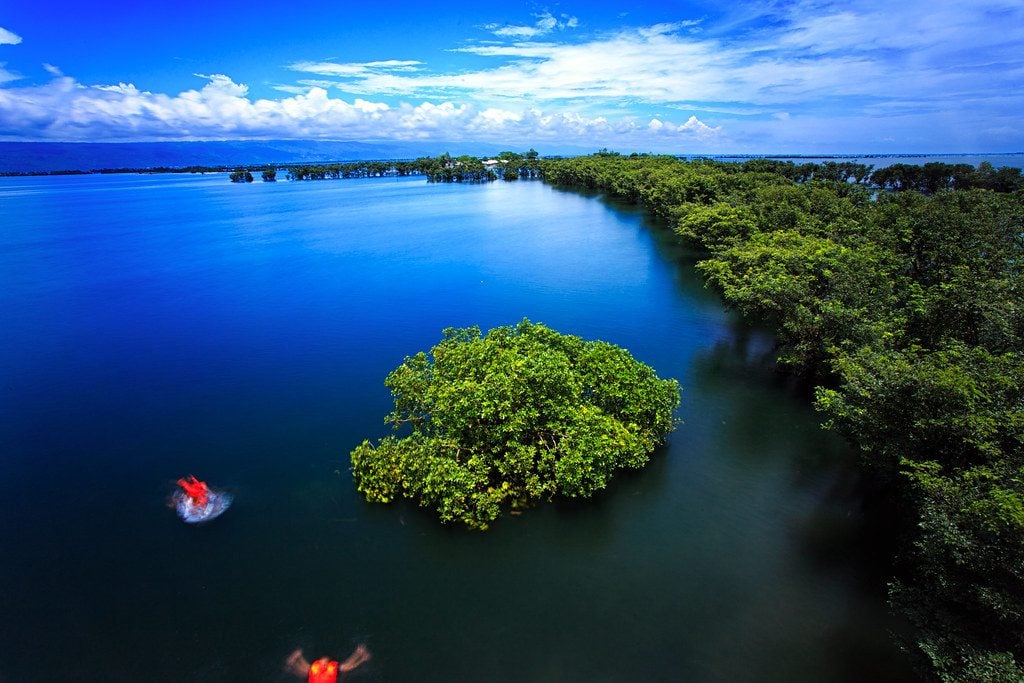Tanguar Haor, located in the Dharmapasha and Tahirpur upazilas of Sunamganj District, is one of the most stunning and ecologically important wetlands in Bangladesh. Covering approximately 100 km², with nearly 2,800 hectares submerged, this unique ecosystem supports more than 40,000 local inhabitants.
🌿 Why Tanguar Haor Matters
- Ecological Treasure
Tanguar Haor is recognized as a Ramsar Wetland of International Importance and is often referred to as the “Mother of Fisheries.” It is home to over 140 species of freshwater fish, 135+ bird species, including many migratory ones, as well as numerous reptiles, amphibians, and aquatic plants. - Seasonal Beauty
During monsoon (June to October), the haor transforms into a vast inland sea, reaching water depths of up to 10 meters. In winter, it becomes a sanctuary for thousands of migratory birds, making it a haven for bird watchers and nature lovers. - Livelihood & Culture
Fishing is not just a livelihood here—it’s a cultural backbone. The local economy thrives during fishing season, and the wetland deeply influences local traditions, folklore, and lifestyle.
🚣 What to Do at Tanguar Haor
- Boat and Houseboat Tours
Glide through the still waters on traditional wooden boats or opt for a more luxurious houseboat experience. These floating homes, some equipped with AC cabins and kitchenettes, offer unforgettable overnight stays surrounded by nature. - Birdwatching & Wildlife
Winter brings a magical scene of migratory birds. Look out for black-necked storks, herons, egrets, and colorful kingfishers. The calm water also hides many rare fish and reptiles. - Community Tourism
Community-based tourism initiatives help promote conservation and provide sustainable income for local families. Local guides offer authentic experiences that include village visits, local cuisine, and cultural storytelling. - Photography & Nature Watching
Capture ethereal landscapes: water lilies, half-submerged trees, and golden sunsets reflected on mirror-like waters. The ever-changing light during dawn and dusk is especially mesmerizing.
🧭 Travel Essentials
- How to Get There
From Dhaka, travel by bus or train to Sunamganj, then continue to Tahirpur by local transport. From there, hire a boat to enter the haor area. - Best Time to Visit
- Monsoon (August–September): Lush, full waterscape
- Winter (December–February): Ideal for birdwatching and mild weather
- Spring (March–April): Blooming nature and clear skies
- Where to Stay
Accommodation options include guesthouses in Tahirpur or eco-friendly houseboats. Facilities may be basic, so pack essentials like towels, mosquito repellent, snacks, and personal hygiene items. - Travel Tips
- Always carry cash—ATMs are rare in remote areas.
- Respect the environment: avoid plastic, follow local rules, and keep noise levels low.
- Dress modestly and behave respectfully, especially in village areas.
🌎 Conservation in Action
Due to overfishing and ecological stress, Tanguar Haor was declared an Ecologically Critical Area in 1999. Since then, efforts led by NGOs and government bodies have focused on habitat restoration, forest plantation, and regulating tourism. Houseboat movement is currently restricted near watchtowers to reduce human-wildlife conflict.
Sustainable travel is key—support local businesses, choose eco-friendly activities, and avoid exploiting natural resources.
✨ Final Words
Tanguar Haor is not just a destination—it’s an experience. It embodies the soul of Bangladesh’s wetland heritage, offering peace, adventure, and an intimate connection with nature. As you explore its waters and communities, remember to leave only footprints and take home only memories.


